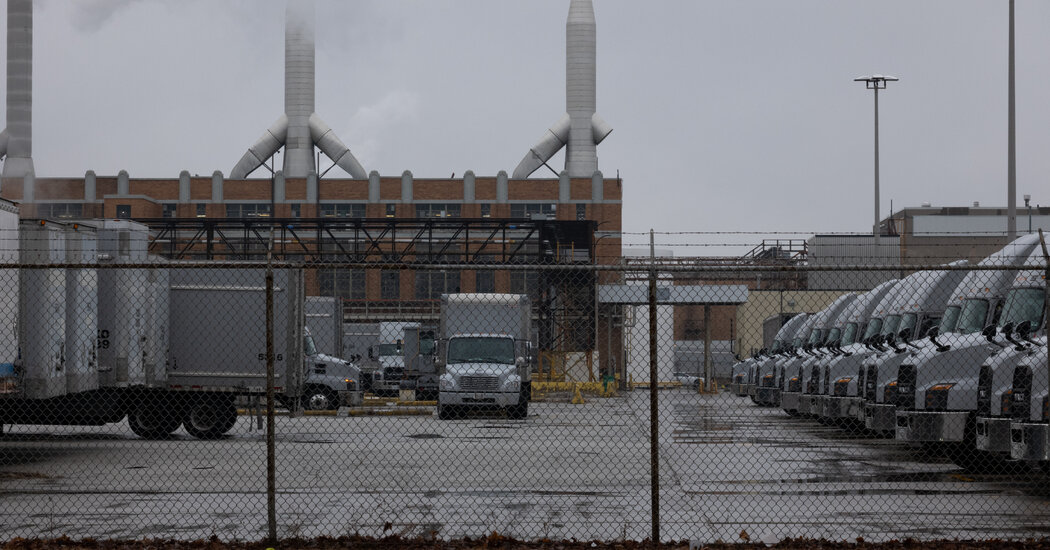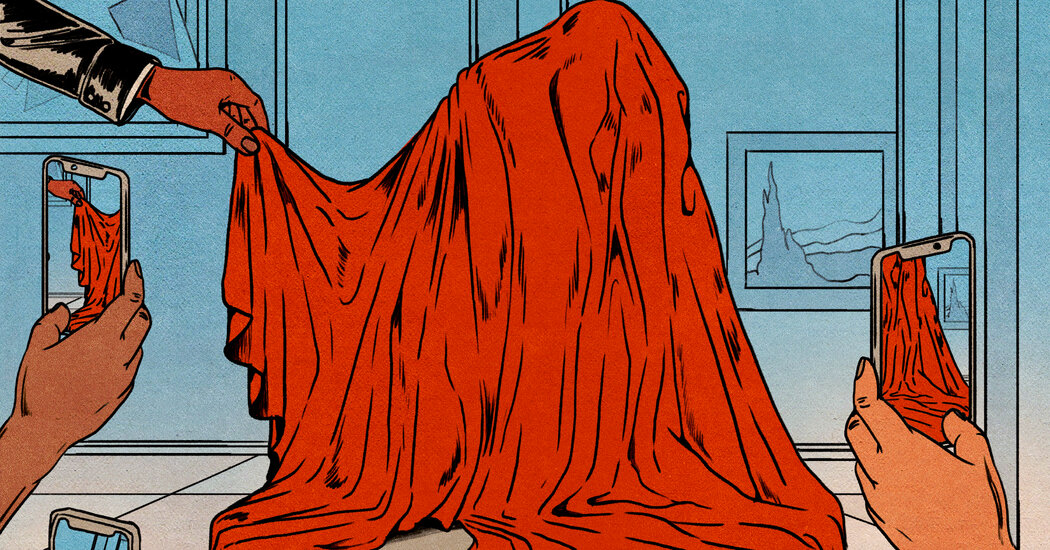Outside City Hall in Windsor, Ontario, it was apparent on Friday morning that at least one American thing wasn’t being boycotted. Fans dressed in Detroit Tigers clothing were gathering at a bus stop to cross the river to take in the team’s home opener.
Beyond the opening day festivities, however, it was a week of particularly bad news for Windsor, my hometown.
President Trump finally announced a raft of global tariffs on Wednesday, including a new 25 percent tariff on cars assembled outside the United States. Its effect on Windsor was unexpectedly immediate. Hours before the tariff went into effect, Stellantis, the automaker that is the city’s largest employer, told Unifor, the union that represents its workers, that about 3,600 of the union’s members would be laid off for two weeks while the company sorts out its tariff strategy.
[Read: Auto Tariffs Take Effect, Putting Pressure on New Car Prices]
[Read: Canada’s Prime Minister Puts Tariffs on U.S.-Made Cars and Predicts Global Upheaval]
[Read: With Trump’s Tariffs, the Chasm Between Allies and the U.S. Widens]
While industry executives and auto analysts had warned for months that the tariffs Mr. Trump was threatening would lead to plant shutdowns, they also thought that wouldn’t happen for weeks.
The contract between Unifor and Stellantis will mitigate the immediate financial impact of the shutdown on union assembly workers. But most workers at auto parts plants in Canada and the United States, which will also probably close or lay off employees, don’t have the same income protection guarantees.
Stellantis and the other companies that make passenger vehicles in Canada — Toyota, Honda, General Motors and Ford — have much to consider. For Canada and Mexico, the United States’ partners in the free trade agreement Mr. Trump signed in his first term, the tariffs will be reduced by the amount of American content in each car, so automakers may be rethinking where they get some of their parts. Auto parts imported from Canada will face similarly reduced tariffs next month, once U.S. officials figure out a way to measure their American content; the task is much more complex for parts than for finished vehicles.
Windsor, the capital of Canada’s auto industry, could now be facing its greatest crisis since 2008, when Chrysler Canada, as Stellantis was then known, needed federal and provincial assistance to avoid financial collapse and a total shutdown.
To get a sense of the new challenges, I met Windsor’s mayor, Drew Dilkens, at City Hall for a follow-up interview. When we spoke two months ago, he said the biggest problem at the time was the uncertainty surrounding Mr. Trump’s trade intentions.
Our conversation has been condensed for space and edited for clarity.
What is happening at Stellantis?
Stellantis is saying, Let’s see what the inventory looks like and let it adjust for two weeks. Let us do the math and figure out what it is now going to cost us to make the vehicle. What do we have to sell it for, and will people buy it?
What do you expect the short-term consequences to be?
Demand for vehicles will fall because prices will go up. Which means you will need fewer people to build fewer vehicles. And you’re going to have this cascading of layoffs throughout the auto industry in the part sector that is not going to be a pleasant experience.
Will that mean the gradual end of assembly plants and parts-making in Canada?
I’m still optimistic that with the exchange rate difference between the U.S. and Canada — and given the number of parts companies that exist here — it’s not practical to think that the U.S. can repatriate all of that. I think the bigger risk is that getting parts from China will become more attractive, even with the tariff rate that is now in place.
Is there anything any politician in Canada can do to end the U.S. tariffs in the short term?
We’re in a tough place, there’s no doubt about it. And I don’t think we ever want to be in this place again.
This shows the risk for Canada from being so reliant on the United States as a trading partner. Still, I think the U.S. will always be our largest trading partner by virtue of proximity and its buying power.
But this decision by the president will have people looking at other markets and contemplating how they can better mitigate that risk.
Election 2025
The Trump tariffs again dominated the election campaign this week. While Mark Carney pledged to create a government-owned affordable housing development agency, Pierre Poilievre, the Conservative leader, offered a tax break for investors who put their gains back into Canadian investments, and Jagmeet Singh of the New Democrats proposed reviving “victory bonds” to bolster the economy during the trade battle in the United States.
-
Chris Donovan, a photographer from Saint John, New Brunswick, has created a compelling photo essay of his city and the overarching influence the Irving family holds over it.
-
Dr. Joanne Liu, a physician in Montreal and a professor at McGill, was supposed to give a long-planned speech in New York at NYU Langone Health, the hospital affiliated with her alma mater, New York University. But after she arrived in the United States, Dr. Liu, a former international president of Doctors Without Borders, was told that her presentation was canceled because it could be perceived as antisemitic and opposed to the U.S. government.
-
In Opinion, the author Stacy Schiff notes that Benjamin Franklin and George Washington, like Trump, tried to persuade Canadians to join the United States — and that those efforts throughout history have had “all the grace and romance of Pepé Le Pew on the trail of Penelope Pussycat.”
-
Also in Opinion, Jill Lepore, the Harvard historian, explores the ideas of Elon Musk’s grandfather, Joshua Haldeman, “a cowboy, chiropractor, conspiracy theorist and amateur aviator.” Before leaving Canada for South Africa, Mr. Haldeman was the leader in Canada of a political movement known as technocracy.
-
Tamara Lich and Chris Barber, two of the main organizers of the four-week blockade that paralyzed downtown Ottawa in 2022, were convicted on Thursday after an unusually long trial.
-
A fan wore a “Canada is not for sale” hat to a Toronto Blue Jays game and was thrown out for it. Vanessa Friedman, The Times’s chief fashion critic, writes that such caps are part of a worldwide phenomenon.
-
A tape that sat gathering dust in a Vancouver record shop for perhaps a decade turned out to be a recording of the Beatles’ 1962 audition for Decca Records, a session that notably ended with the band’s rejection.
-
Peter S. Goodman writes about a family-owned business in Ottawa that makes violin shoulder rests and how it’s been caught up in the trade war.
Ian Austen reports on Canada for The Times based in Ottawa. He covers politics, culture and the people of Canada and has reported on the country for two decades. He can be reached at austen@nytimes.com. More about Ian Austen
How are we doing?
We’re eager to have your thoughts about this newsletter and events in Canada in general. Please send them to nytcanada@nytimes.com.
Like this email?
Forward it to your friends, and let them know they can sign up here.


